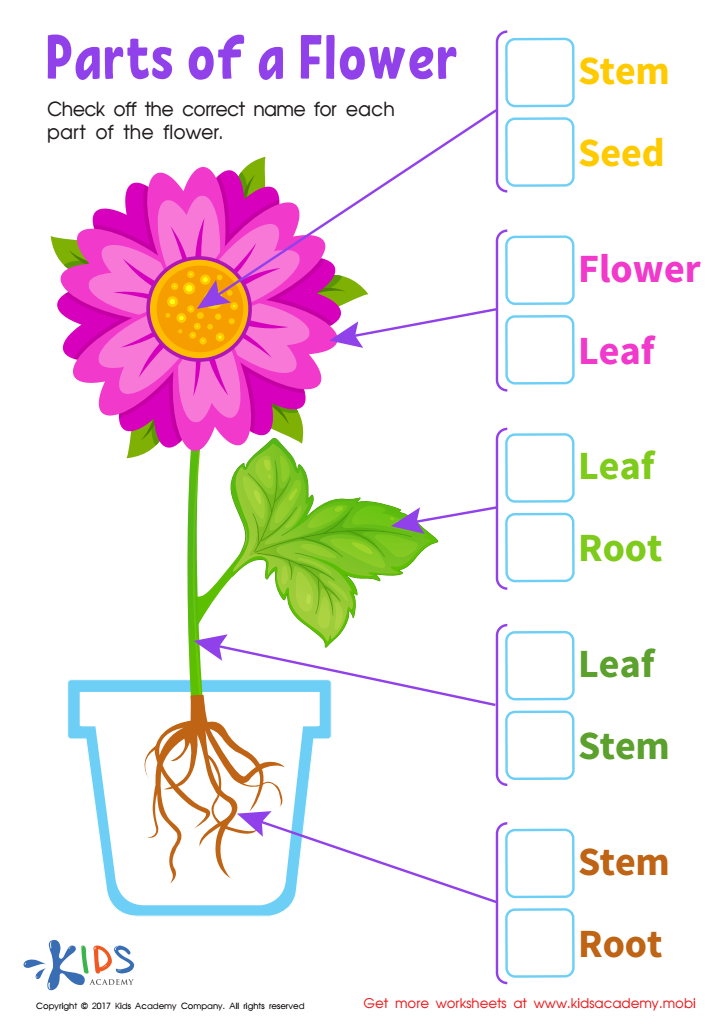Life Science Worksheets for Ages 3-7
3 filtered results
-
From - To
Discover our engaging Life Science Worksheets for children aged 3-7, designed to spark curiosity about the natural world. These age-appropriate resources make learning about plants, animals, and ecosystems fun and interactive. Our worksheets encourage critical thinking while helping young learners explore essential life science concepts through vibrant illustrations and hands-on activities. Ideal for at-home learning or classroom use, these worksheets support early childhood education standards and make science accessible to young minds. Let your little ones dive into the wonders of life science with our captivating materials, nurturing a love for discovery and knowledge from an early age!


Parts Flower Printable


Herbivores Printable


Carnivores Worksheet
Parents and teachers should prioritize Life Science education for children ages 3-7 because it lays the foundation for understanding the world around them. At this developmental stage, children are naturally curious, eager to explore and ask questions about living things—plants, animals, and humans. Engaging with Life Science fosters their innate curiosity, encouraging observation, inquiry, and critical thinking skills that are essential for lifelong learning.
Moreover, introducing Life Science early promotes an appreciation for nature and biodiversity, instilling values of environmental stewardship from a young age. It helps children develop empathy and understanding for other living beings, fostering social and emotional skills as they learn about cooperation and coexistence within ecosystems.
Additionally, Life Science integrates well with other subjects like math, literacy, and the arts, making it a versatile component of early education. By incorporating hands-on activities such as gardening, observing insects, or discussing the life cycles of animals, educators can create memorable learning experiences that enhance cognitive development.
Ultimately, engaging children with Life Science cultivates responsible, knowledgeable citizens who can contribute positively to society and make informed decisions about health, sustainability, and science-related issues in the future.

 Assign to My Students
Assign to My Students




















